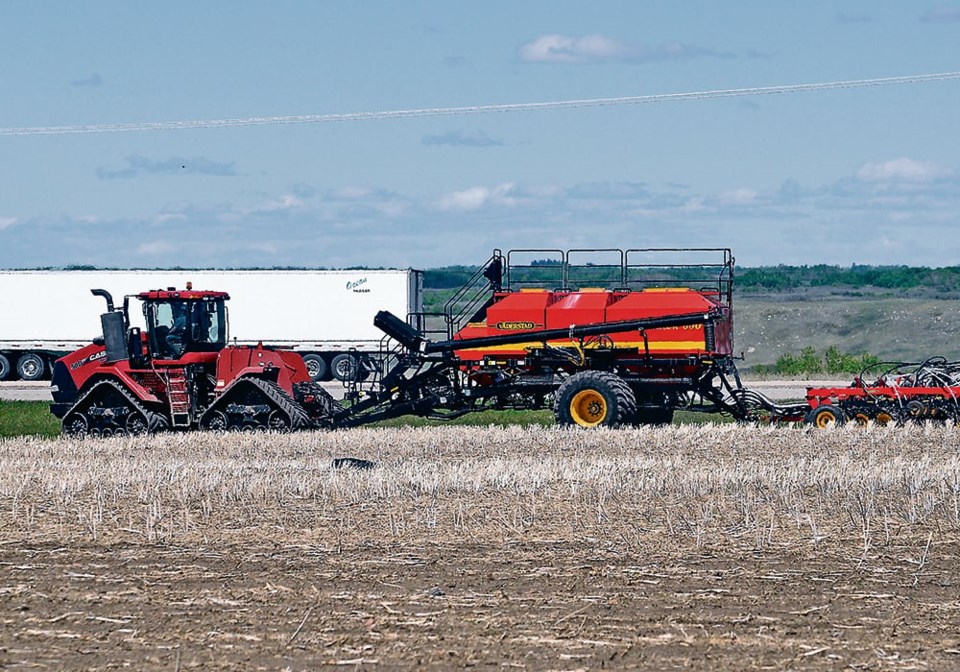WESTERN PRODUCER — A national network of smart farms led by Olds College that seeks to help producers is nearing the end of its first phase with the addition of new members in Alberta and Manitoba.
Lethbridge College has joined the Pan-Canadian Smart Farm Network, said Joy Agnew, vice-president of research at Olds College in Alberta.
The other new member is Innovation Farms Powered by AgExpert, which is part of the Manitoba-based Enterprise Machine Intelligence and Learning Initiative (EMILI), bringing the number of members across the prairie provinces to seven.
Agnew expected an eighth member would join soon, from Eastern Canada.
“And that will most likely be our last expansion site for now until we launch into the next phase of the smart farm network.”
The initiative aims to improve productivity and sustainability of farmers and ranchers by encouraging greater technology use. The network was partly launched in 2021 by the Olds College Smart Farm and the Lakeland College Student-Managed Farm in Vermilion, Alta.
The third founding member was the Glacier FarmMedia Discovery Farm in Langham, Sask., which is operated by the company that owns The Western Producer. Agnew said one function of the network is to showcase “what could be coming with the advancements of technology and computing power and artificial intelligence and everything else.”
However, it will also evaluate and demonstrate technologies, she said.
“We have to thread that line between being super future forward thinking, as well as practical and useful for growers and ranchers today.”
The goal is to provide useful, independent and unbiased information, said Agnew.
“And we basically want to make sure that no technologies come to market or come to trade shows without being thoroughly tested and validated at a smart farm,” she said.
ADVERTISEMENT
The Olds College Smart Farm is a 3,600-acre farm that allows people to demonstrate and evaluate new, cutting-edge technologies ranging from machine learning to autonomous farm machinery, lowering the risk for producers, said Agnew.
“We are set up basically to do projects, and work with partners and clients on developing and validating technologies and ideas, and then sharing the non-proprietary information with the public so they can learn. And they can see when a new idea is working in a system that’s similar to theirs, or at least in a similar region to theirs.”
Because Canada’s agriculture industry is so geographically widespread and diverse, “we wanted to cover as many of those different regions and production types and cropping systems …. as possible to get as much perspective or as much experience as possible,” she said.
The network includes the University of Saskatchewan Livestock and Forage Centre of Excellence near Saskatoon, along with Manitoba Beef and Forage Initiatives Inc. near Brandon.
The facilities at new member Lethbridge College include the Centre for Applied Research, Innovation and Entrepreneurship, said a statement by Olds College. “CARIE is able to support on-farm activities with a 385-acre irrigated research farm located just east of Lethbridge, numerous irrigation systems and technology, field-scale plots, crop production and a state-of-the-art grain-drying facility.”
The centre also contains more than 7,000 sq. feet of laboratory space, along with more than 20,000 sq. feet of controlled-environment agriculture facilities. The latter includes the Aquaculture Centre of Excellence and Centre for Sustainable Food Production.
The other new member, EMILI, is an industry-led non-profit with a specific focus on digital agriculture, including the Innovation Farms Powered by AgExpert.
The 5,500-acre commercial operation is a fully sensored seed farm that allows the network to study dryland crop production.
“We know that technological advancement leads to new and expanded businesses, new well-paying jobs, and the preservation of existing jobs,” said EMILI managing director Jacqueline Keena in a statement from Olds College.



